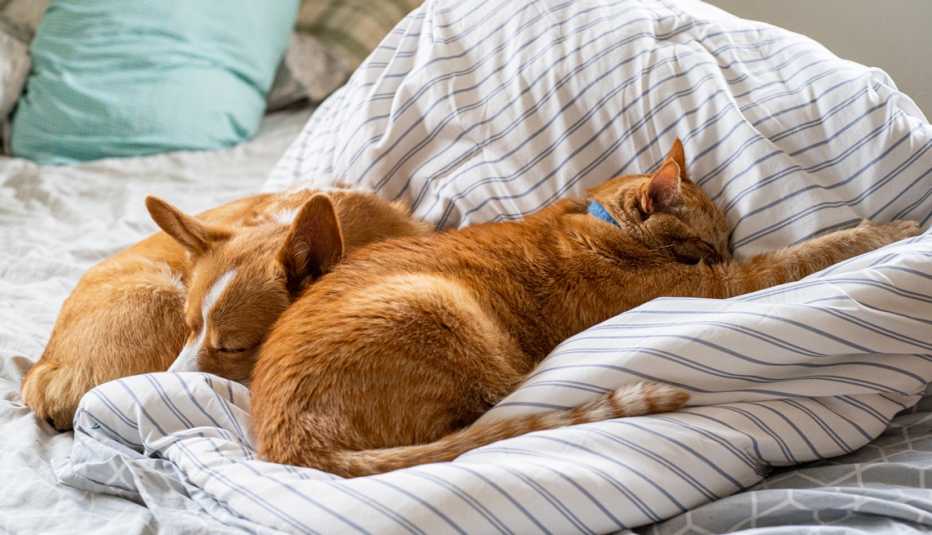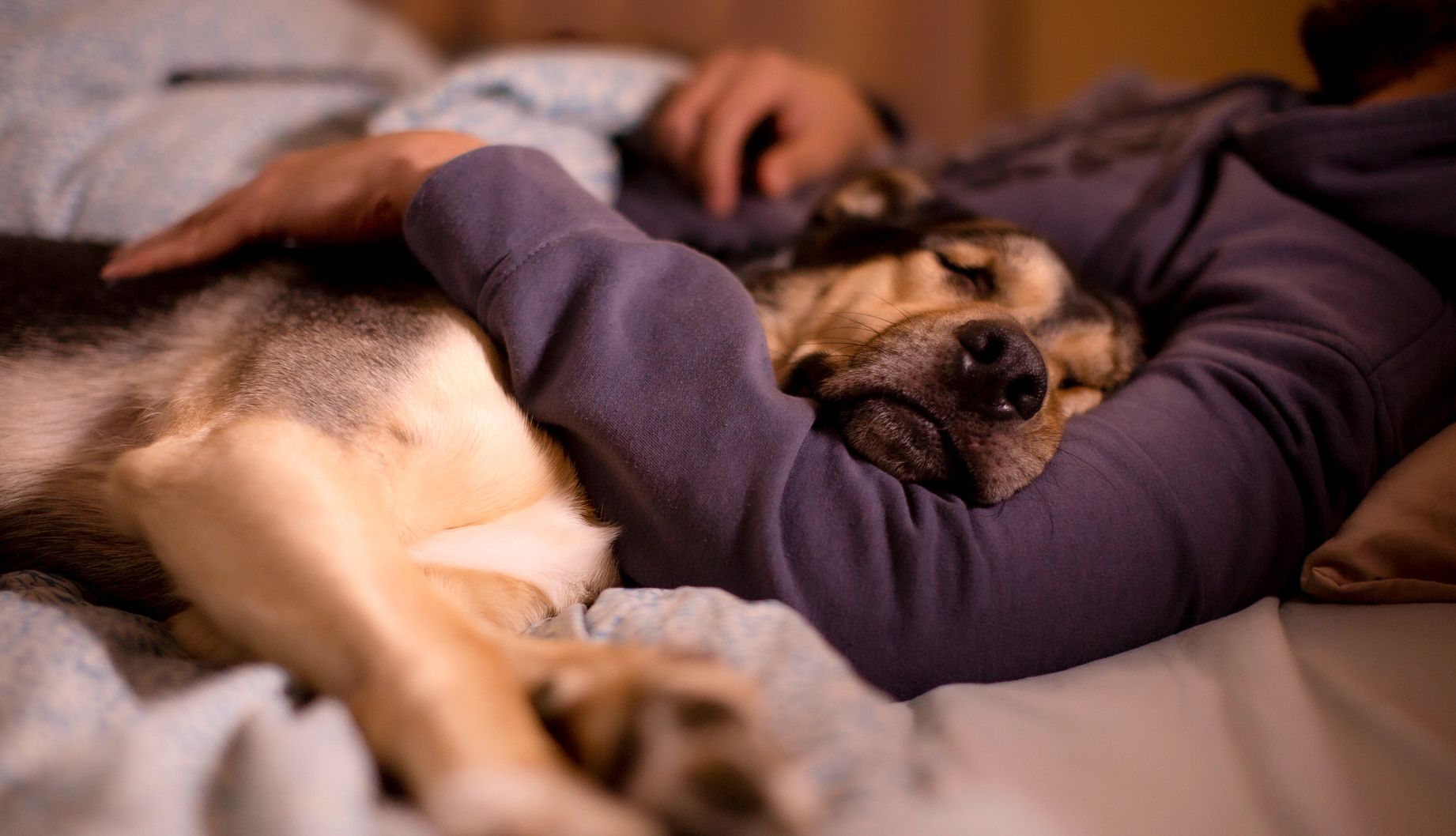AARP Hearing Center


When Pam Lewis, 53, brought home Squeak, a tiny Chihuahua mix she rescued during the pandemic, she planned to have her sleep in her crate, like her previous dogs.
“I’ve always believed that a dog shouldn’t sleep in the bed,” she says. She never intended to make an exception for Squeak.
Then Squeak got a respiratory infection. “She was really miserable, really sick, and there was a night or two where I just wanted to make sure she was OK all night, so I put her in the bed,” says Lewis, who lives in Chicago.
Now Squeak cuddles up to Lewis in bed every night, and that’s a problem. “She wants to be right next to me or on me, and I’m not sleeping well,” Lewis says. “I’ve hit a threshold. We really need to get her back off the bed.”
The case against pets in the bed
This scenario isn’t uncommon, says Kwane Stewart, veterinarian and founder of Project Street Vet. In his more than 25 years of practice, he’s heard this story many times from clients — and he’s been in the same boat himself. He used to allow his dog in his bed, but over the years, good sleep has become harder to come by, and he now maintains a pet-free sleeping space.“There’s the pet’s health, and there’s your health,” Stewart says. “As much as you’re looking out for your pet’s health, you’re also looking out for yours.”
Here are some reasons why you may not want your pet to share your bed.
1. Possible injury
Jumping in and out of bed is more of an athletic feat for our dogs than it is for us, and for long-backed dogs like corgis, small breeds, puppies whose bones are still growing or dogs with arthritis, that type of movement can be downright dangerous.
“About 20 percent of all dogs have some form of arthritis, and jumping on and off a bed is not ideal for maintaining joint health,” Stewart says.
Dogs with a long, low build are more likely than others to suffer a back injury due to that repetitive motion. “Dachshunds are the leader in that territory. They can slip a disc or worse — I’ve seen them come in paralyzed,” he adds. There’s also the potential for injury from falling off a bed while dreaming or if a pet has a seizure.
With cats, the likelihood of injury from falling or jumping is far less in general, Stewart says. “However, older cats do have a high incidence of arthritis, which many people don’t realize,” he explains.
After age 9, many cats may begin experiencing pain in their joints, which can make it harder for them to jump up and down from their favorite places. “If you see your cat sit there and look at their spot, instead of walking over and jumping right up, that’s a sign they might be having issues.” This is a good thing to discuss with your vet, since there are treatments to help reduce the pain.
And it’s not just pets who might get injured. Groggy humans making a midnight visit to the bathroom could be tripped up by pets.
2. The threat of parasites
When you invite your pet onto the bed, you may also invite fleas and ticks, which climb aboard your pets while they’re outside (especially during warmer months), burrow into their fur and feed on their blood — and possibly yours, too, once they’ve hitchhiked into your house. Not only do fleas and ticks cause discomfort and itchiness, but they can infest your home, and their bites can lead to infection. In the case of ticks, their bites can also lead to Lyme disease in pets and humans. Dogs, particularly those who spend lots of time outdoors, are more likely to carry fleas and ticks than cats, Stewart says. “Cats are so fastidious that, even if they get a flea or two, they’re always grooming themselves. They’ll catch a random flea before it can find a home and breed,” he says. Still, he recommends flea and tick preventive treatments for cats and dogs, especially if they spend any time outdoors or are in contact with other pets who spend time outdoors.
Pets can also transmit ringworm to their humans, and Stewart has identified ringworm spots on pet owners in his clinic, more often when the pet sleeps in the bed, since that’s a prime place for close-up cuddling.
Since ringworm is transmitted by skin-to-skin contact, it’s worth keeping an eye on your pet for any circular areas of hair loss on their bodies.





































































More From AARP
How a Dog Found His Forever Home at a Michigan Nursing Home
Scout, 9, shares his first-doggy account about running away from an animal shelter and finding home
A Sanctuary for Older Dogs Is One Woman’s Dream Fulfilled
Chris Shaughness rescues, rehabilitates and helps find homes for the older pups no one wants
How to Keep Your Pets Safe in Winter
From frostbite to flu, winter brings seasonal hazards for dogs, cats, birds, reptiles and even fish
Recommended for You